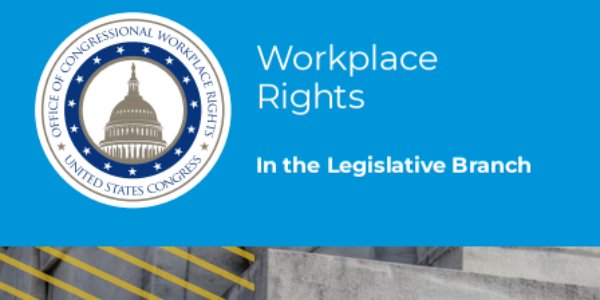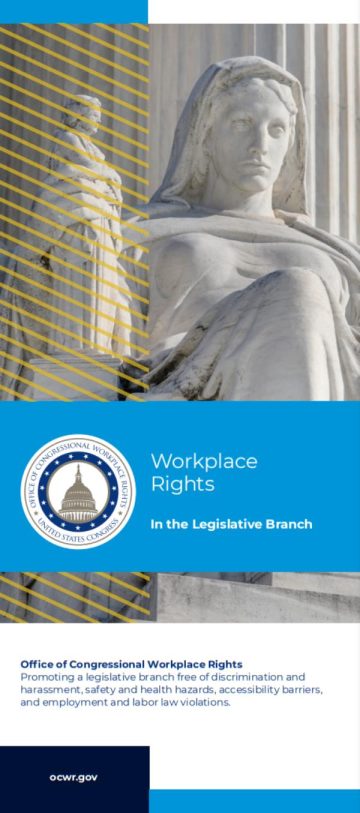What is the Congressional Accountability Act?
The Congressional Accountability Act of 1995 (CAA), 2 U.S.C. §§ 1301 et seq., applies employment, labor, safety and health, and accessibility laws to the legislative branch, including:
- Title VII of the Civil Rights Act of 1964
- Rehabilitation Act
- Americans with Disabilities Act (ADA)
- Age Discrimination in Employment Act (ADEA)
- Family and Medical Leave Act (FMLA)
- Fair Labor Standards Act (FLSA)
- Employee Polygraph Protection Act (EPPA)
- Worker Adjustment and Retraining Notification Act (WARN Act)
- Uniformed Services Employment and Reemployment Rights Act (USERRA)
- Veterans Employment Opportunities Act (VEOA)
- Occupational Safety and Health Act (OSHAct)
- Federal Service Labor-Management Relations Statute
- Genetic Information Nondiscrimination Act
The CAA provides legislative branch employees with many of the same protections that apply to employees in the private sector and the executive branch of the federal government.
All allegations of reprisal, intimidation, or discrimination in retaliation for asserting workplace rights under the CAA must be initiated by filing a claim with the Office of Congressional Workplace Rights (OCWR).
Who is covered by the CAA?
The CAA, as amended by the CAA Reform Act of 2018, protects legislative branch staff in the following offices:
- U.S. House of Representatives
- U.S. Senate
- Office of Congressional Accessibility Services
- United States Capitol Police
- Congressional Budget Office
- Office of the Architect of the Capitol
- Office of Attending Physician
- Office of Congressional Workplace Rights
- Library of Congress
- Office of Technology Assessment
- Stennis Center for Public Service
- U.S.-China Economic and Security Review Commission
- Congressional-Executive Commission on China
- Commission on Security and Cooperation in Europe (U.S. Helsinki Commission)
In certain instances, unpaid staff, job applicants, and former employees are protected by the CAA.

